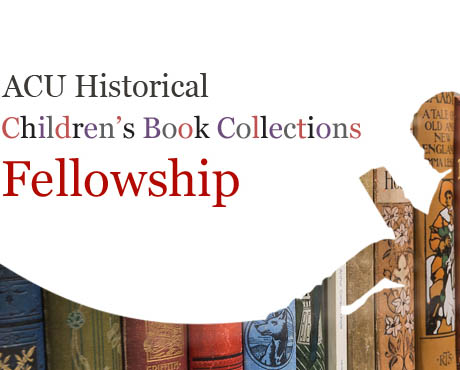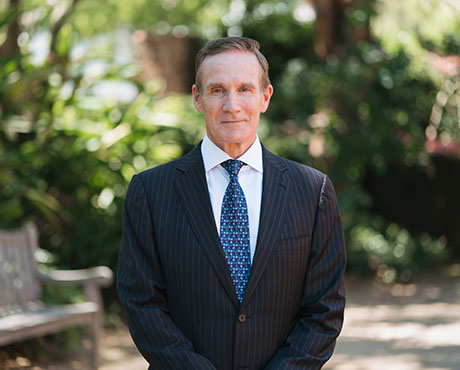
Have you visited Viva Engage yet?
News 16 DecemberViva Engage is here. Access it easily via Microsoft Teams.
25 November 2021
Share
The ‘Credit, Where Credit’s Due’ Project team has been awarded the 2021 Vice-Chancellor’s Medal for Excellence in recognition of their work to develop a ground-breaking framework to map military training to tertiary credits.
This cross-functional team also received the Vice-Chancellor’s Staff Excellence Award for Mission Excellence.
In a sector first, the ‘Credit, Where Credit is Due’ initiative enables Australian Defence Force veterans to have their skills and qualifications obtained during service assessed for credit (RPL).
It extends the service and support provided by ACU to veterans by both encouraging them to pursue further studies and recognising their formal training in the ADF and service to the common good.
“This really gives veterans a step forward in the next step of the journey,” said Student Veteran Services Coordinator Mr Aaron Cornwall, a member of the project team alongside Student Administration’s Associate Director, User Experience Ms Liz Moon and Project Manager Mr Nik Linnell, the Peter Faber Business School’s Associate Professor Wendy James, and the Faculty of Law and Business’s Partnerships and Course Administrator Mr Eduardo Almeida.
“They’re coming out of the defence force at a point in their life where they don’t really have time to throw around, so being able to transition out with some sort of advanced standing gives them an opportunity to find meaningful employment.”
Tertiary education provides an avenue to obtain such employment, which research shows serving members can struggle with when they leave the armed forces.
It all started in 2020, when ACU and its project partner Australian Student Veterans Association (ASVA) received a grant from the Department of Veterans, Affairs to develop a recognition of prior learning framework for transitioning veterans of the ADF.
Project Manager Nik Linnell, himself a veteran, worked with the ASVA and other partners to gain access to previously classified ADF learning management packages (LMPs). The ADF is a registered training organisation, and these packages are laid out like unit outlines.
Associate Professor Wendy James and Eduardo Almeida, both from the Faculty of Law and Business, then undertook a painstaking academic assessment of the LMPs – jargon-rich documents, some over 200 pages long – to check the equivalent standing in courses and units at the Peter Faber Business School. They shared the assessment with ACU’s other faculties, which have also applied equivalency.
This assessment was documented into a shareable database that transitioning ADF veterans could use to search for keywords and courses, making it easier for them to understand the RPL to which they’re entitled.
“The goal was not so much to look at what they hadn't done, but what had they done,” Wendy said. “These personnel had served so that we would have a future, so our goal was to help them have a pathway to their future, so to speak.”
To date, more than 40 degrees have been identified as containing course rules which will allow the application of RPL. ACU is also in the process of approving two minors for arts and business.
The team behind this ground-breaking project is proud that their work will deliver positive social impacts across the Australian veteran community.
“What makes this project so unique is the fact that it’s recognition, and recognition is one of the areas that members feel hard done by – particularly after spending so long in defence force,” said Aaron, also an ADF veteran.
“It’s not so much that service doesn’t transfer, it’s that no one has sat down and mapped it out and said, ‘This is how it transfers across.’ So this really provides a massive step in that process.”
ACU students are already benefiting, with the framework being used to assess the service records of all enrolled student veterans and award credit.
According to Nik, the project team is also starting to assess how LMPs can be mapped to courses they haven’t yet looked at; for example, the Bachelor of Criminology and Criminal Justice. It’s projected that, by 2023, a sizeable cohort of veterans will graduate from an ACU course after receiving credit on entry.
There is also the potential for thousands more veterans to benefit Australia-wide.
ACU is working with partner organisations to promote the credit precedents to transitioning veterans, and the RPL assessment process will be shared with other institutions to fast-track the widening of the framework across the higher education sector – one of the project’s aims all along.
“We’re going through that process now to make sure that veterans who choose universities other than ACU still benefit from the work that Wendy and Eduardo undertook,” explained Nik. “It really is an extension of the mission beyond the university.”
The ‘Credit, Where Credit is Due’ Project team worked beyond their day-jobs to deliver a highly impactful outcome that promises to help a great many more people in the future.
Eduardo Almeida echoed the sentiments of the other team members when he said it was a privilege to be part of the team and the project, regardless of the work and effort involved.
“I migrated to Australia and I didn’t have the understanding that I have now of the Australian Defence Forces and its veterans,” he said. “We are giving them possibilities at ACU to continue their studies and move on with their lives after their service.
“And knowing we are bringing benefits and value to a whole lot of people that otherwise wouldn't have that chance … it warms your heart.”






Viva Engage is here. Access it easily via Microsoft Teams.

A message from Interim Executive Dean, Faculty of Education and Arts, Professor Phil Parker

The library is supporting the ACU Historical Children’s Book Collections 2025 Fellowship. It is an opportunity to conduct research on our historical collection of children’s books, located at St Patri...

A new Adjunct and Honorary Titles Policy and Procedure has been approved and is now in effect at ACU.

Advance your career in teaching and learning with the Graduate Certificate in Higher Education. Enrol by 22 June to get started in Professional Term 5.

Include an additional survey item in the Student Evaluation of Learning and Teaching (SELT) survey for units that are offered in ACU Online Term 2 (202536).

On 24 June ACU will transition to the new EBSCOhost. This will result in a new look and feel across some of our most popular databases. Learn more about the changes and what action may be required of ...

Teaching staff are encouraged to check their units have been correctly linked to their names for the Student Evaluation of Learning and Teaching (SELT) surveys in upcoming teaching periods.

Please be aware of the following changes to payroll processing dates.

ACU has three student modules: the Academic Integrity, Respectful Relationships, and Protecting our Children modules. Semester 1 students must complete their modules by 1 July to access their results ...

As part of Student Administration's commitment to service excellence, AskACU will be running on-campus re-enrolment drop-in sessions in July, while CMAS enhancements will improve information available...

The Student News and Events bulletin is sent to all students, nationally, and includes a broad cross-section of news, announcements, events and stories from across the university. The May edition is o...

A message from the Chief Operating Officer Patrick Woods.

Register for these 15-minute sessions to learn more about the variety of online researcher profile platforms and what is involved in setting up, linking and updating your profile.

Lecturers-in-charge can make a direct determination of Poor Academic Practice (PAP) for students who engage in minor forms of academic misconduct. Learn why they can be valuable to staff and students.

A reminder to all academic staff that the mandatory Notice of Intent, for those intending to apply for promotion in the 2025 round, must be submitted by 11.59pm this Friday (30 May).

ACU is developing a new Education and Student Success Plan to ensure our university continues to provide a high-quality, student-centred learning experience. Find out how you can contribute to the pla...

Expect a few email notifications as we prepare to welcome you to Viva Engage next week.

Include an additional survey item in the Student Evaluation of Learning and Teaching (SELT) survey for units that are offered in Professional Term 4 (202547).

An update from the Executive Dean of Law and Business Professor Andrew O'Neil.
Visit Service Central to access Corporate Services.